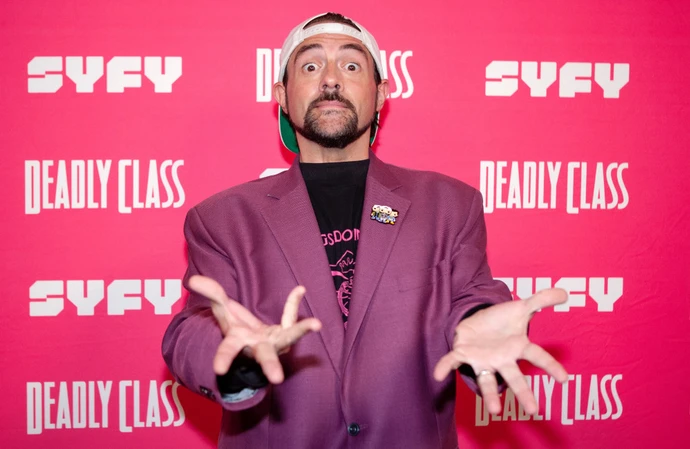Kevin Smith lives like he’s on ‘borrowed time’ after surviving massive near-fatal heart attack
After being hit by a cardiac arrest in 2018, Kevin Smith has said he lives like he is on “borrowed time” – but insists he is grateful for the health scare forcing him to live a healthier life.

Kevin Smith lives like he is on “borrowed time” after surviving a near-fatal heart attack.
The ‘Clerks’ filmmaker, 53, was left reeling by a “massive” cardiac arrest in 2018 and has now said he has worked hard on changing his mindset so he can enjoy living in the moment.
He told People about how his mental health is “good” despite the health shock: “I’m holding on. It’s coming up on a year and a half since I got out (of hospital.)
“And when you’re in there, it’s very easy to stay healthy because you’re surrounded by people who are doing the same.
“And then the moment you leave, you’re back in the real world and the rat race begins anew.”
He added about changing his approach to life: “It is struggle – not a difficult f****** life-or-death struggle, but it’s a struggle – to remember to breathe and place yourself in the here and now.
“Be mindful, not live in the past, not worry about the future, but just be right here… a few years ago, there’s a chance that I didn’t walk away from a heart attack… I’ve gotten six (years) since then.
“I work under the assumption I'm living on borrowed time, so I just try to enjoy it.”
In 2022, Kevin told People his heart attack was “the greatest gift I ever had” as it made him overhaul his life and increased his work output.
He added: “Not only did it save my life, make me go vegan and go healthier and stuff, but it gave me the spine for ‘Clerks III’.”
The film echoes his life as it sees its most outspoken character Randal Graves, played by Jeff Anderson, 54, hit by a heart attack in the film.
Kevin said about a scene where Randal is lying on an operating table pondering his existence: “That was based on real life. I was making peace with the fact that this could be it.”
Kevin had been told by a doctor he had an 80 per cent chance of dying when he had his cardiac arrest.







